Vietnamese New Year Traditions and Celebrations
Among a bunch of traditional festivals, Vietnamese New Year or Tet/ Tet Nguyen Dan is the most important and meaningful. It is the transition moment between the old year and the new year, representing the cohesion of the community and family, and featuring the deep spiritual and cultural values of Vietnamese people. Tet changes year by year depending on the lunar calendar. However, it usually falls from late January to early February on the solar calendar.
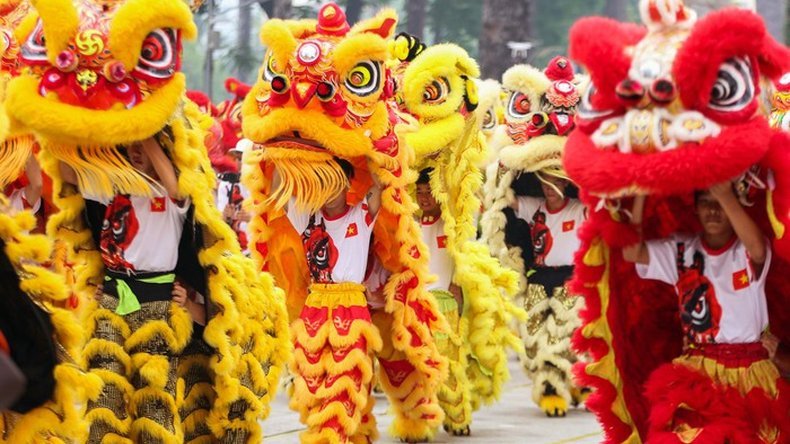
Tet is a time for children and family members to return home, honoring ancestors and parents, and maintaining family bonds. It also serves as an opportunity to express care for friends, relatives, and neighbors who are significant in one's life. Tet provides a moment for reflection on the past year's challenges while setting goals for the upcoming year.
The true origins of Tet remain a subject of debate. Some argue that Tet is influenced by Chinese culture, whereas others believe it originated in Vietnam during the first century AD, prior to the Chinese domination that lasted for a millennium. Regardless of its origin, the Vietnamese New Year boasts its distinct cultural beauty and national traditions.
Throughout Tet, numerous traditions are observed, all representing a well-preserved culture with meaningful significance to the Vietnamese people. Join us to explore the various New Year traditions over time to gain a deeper understanding of Vietnamese culture and its people!
23rd December (Saturday, 29 Feb 2025)
Worship Ông Công Ông Táo (Kitchen God Day)
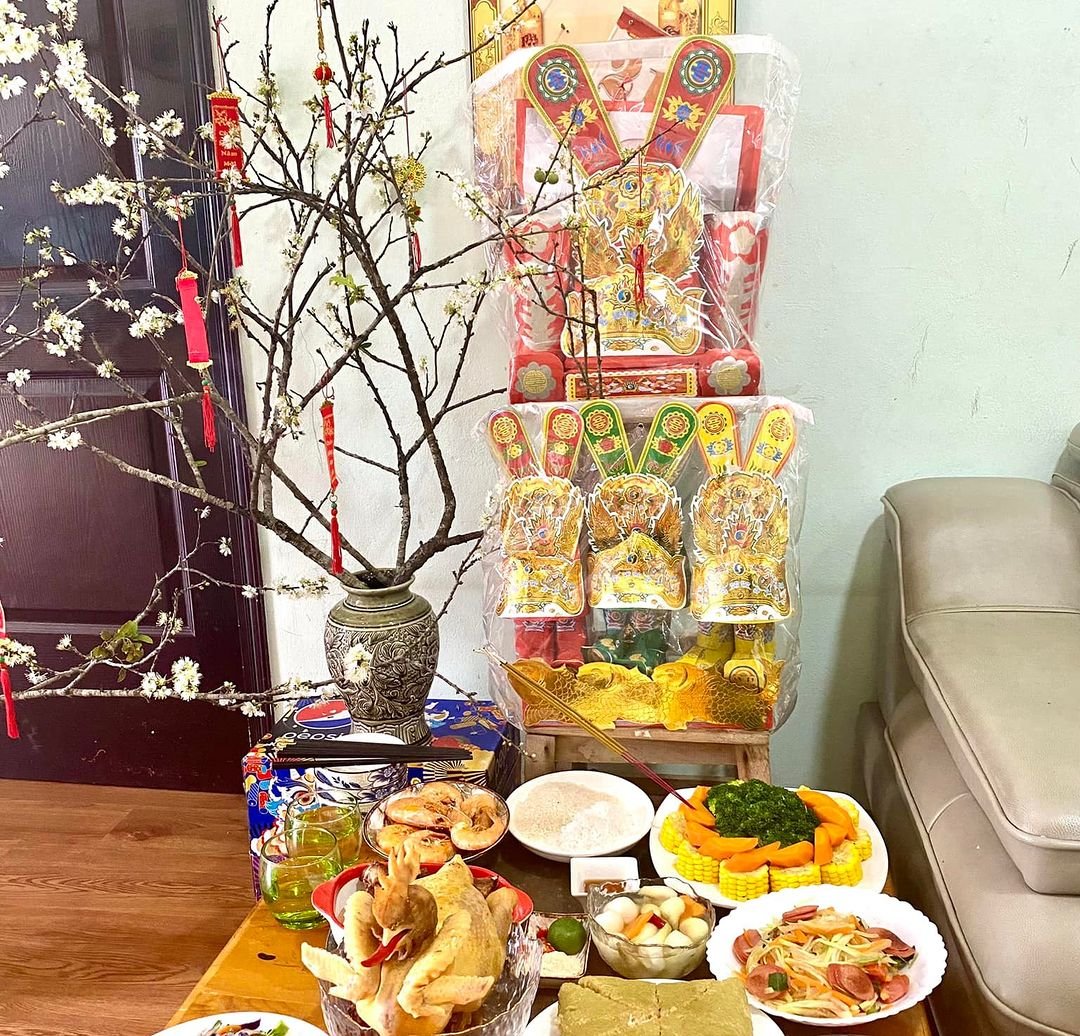
Kitchen God Day is considered one of the most crucial traditions of Vietnam’s New Year. It relates to the legend of Ông Công Ông Táo, the kitchen gods who oversee family matters. December 23 is recognized as the day the gods conclude their yearly tasks and ascend to heaven to report to the Jade Emperor.
On this day, families clean the altar and prepare various dishes, fruits, and offerings such as paper clothes and hats for the gods' journey to heaven. Incense is burned, paper offerings are set aflame, and carp are released into rivers to finalize this important ritual.
24th - 29th December (01-06 Feb 2025)
Visit Ancestors' Graves
Tet is a time to reunite and honor one’s roots, making visits to ancestors' graves a vital ritual. People clean the gravesite and place offerings like fruits, fresh flowers, and incense as a sign of gratitude and an invitation for ancestors to join the Tet celebrations.
Wrap Bánh Chưng / Tét Cake
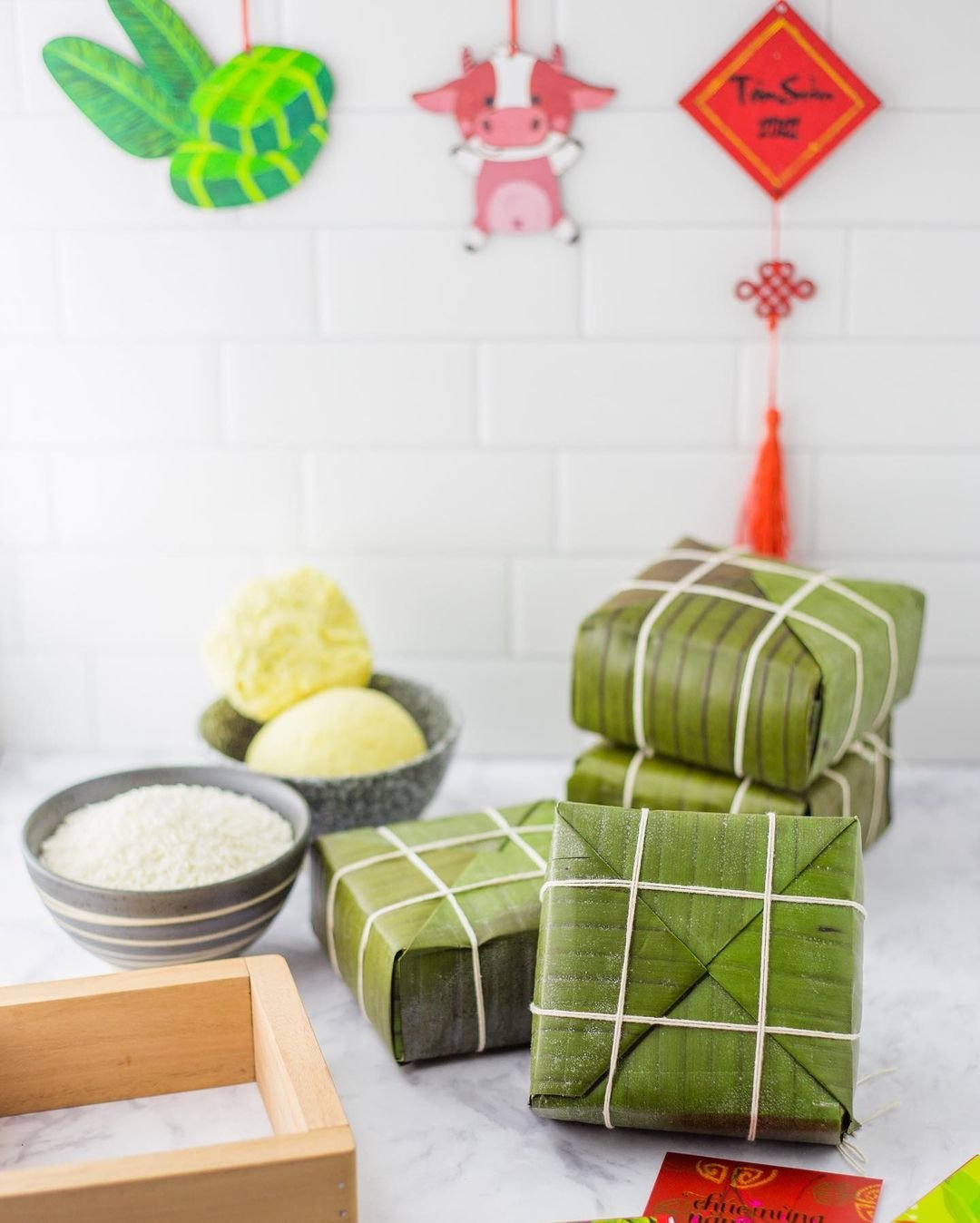
Bánh Chưng and Tét Cake are the essence of Tet. These traditional cakes symbolize respect for the heavens, earth, and ancestors. Bánh Chưng is favored in the North while Tét Cake is more common in the South and Central regions. The process of wrapping these cakes encompasses several steps, from gathering ingredients to wrapping and cooking. This collaborative effort brings families together in a festive atmosphere.
Both cakes are integral to Tet feasts and can be stored for a week or two. The preparation typically occurs from December 26 to 28 on the Lunar Calendar, depending on family schedules.
Clean and Decorate the House
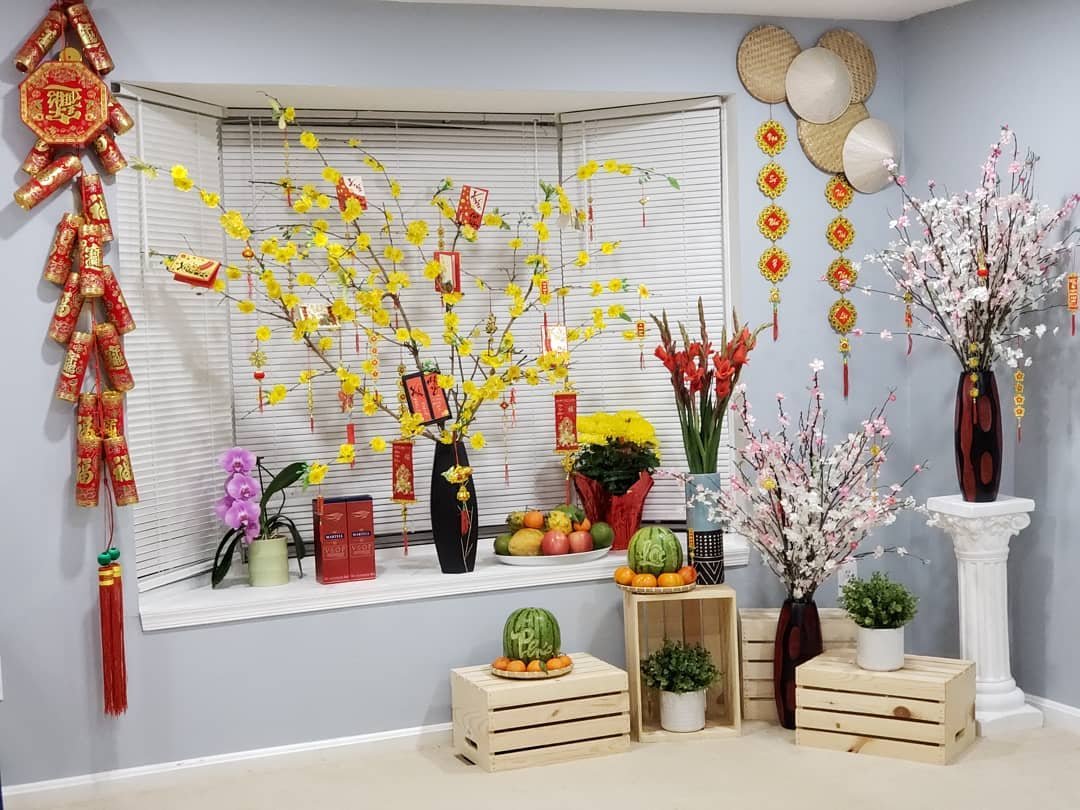
New Year marks a fresh beginning. Cleaning and decorating the house not only enhances its beauty for the most significant holiday but also clears away the misfortunes of the past year, allowing for the welcoming of new luck. Items like "Happy New Year" banners, lanterns, and couplets are readily available throughout Vietnam as the lunar December approaches.
Buy Fresh Flowers and Traditional Trees
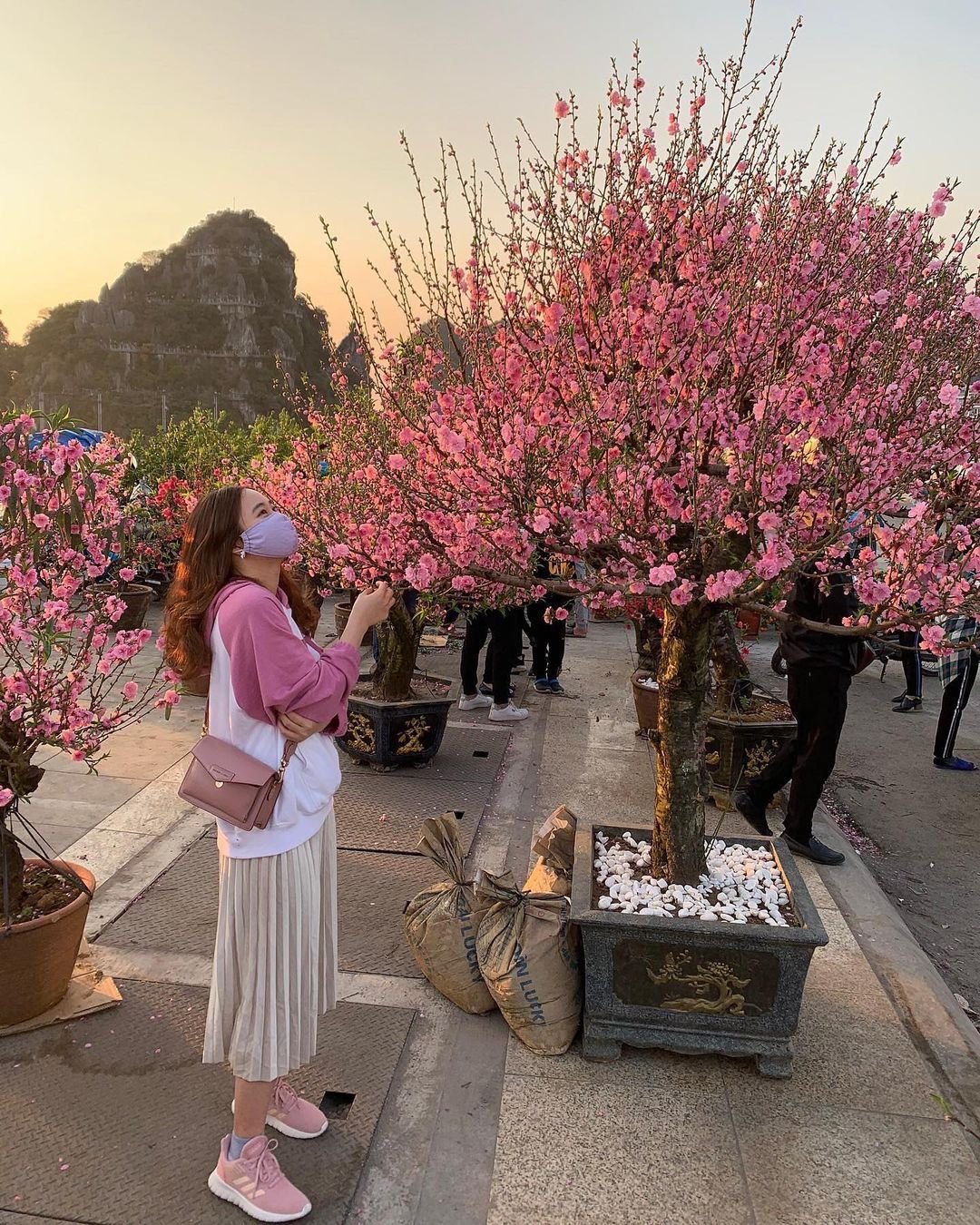
In the North, families typically have a kumquat tree and peach blossoms during Tet, while the South often favors the apricot blossom. These traditional trees create a festive ambiance in homes and symbolize wishes for good fortune in the upcoming year. A kumquat tree abundant with fruit and peach or apricot trees full of blossoms are further signs of prosperity.
Prepare a Five-Fruit Tray
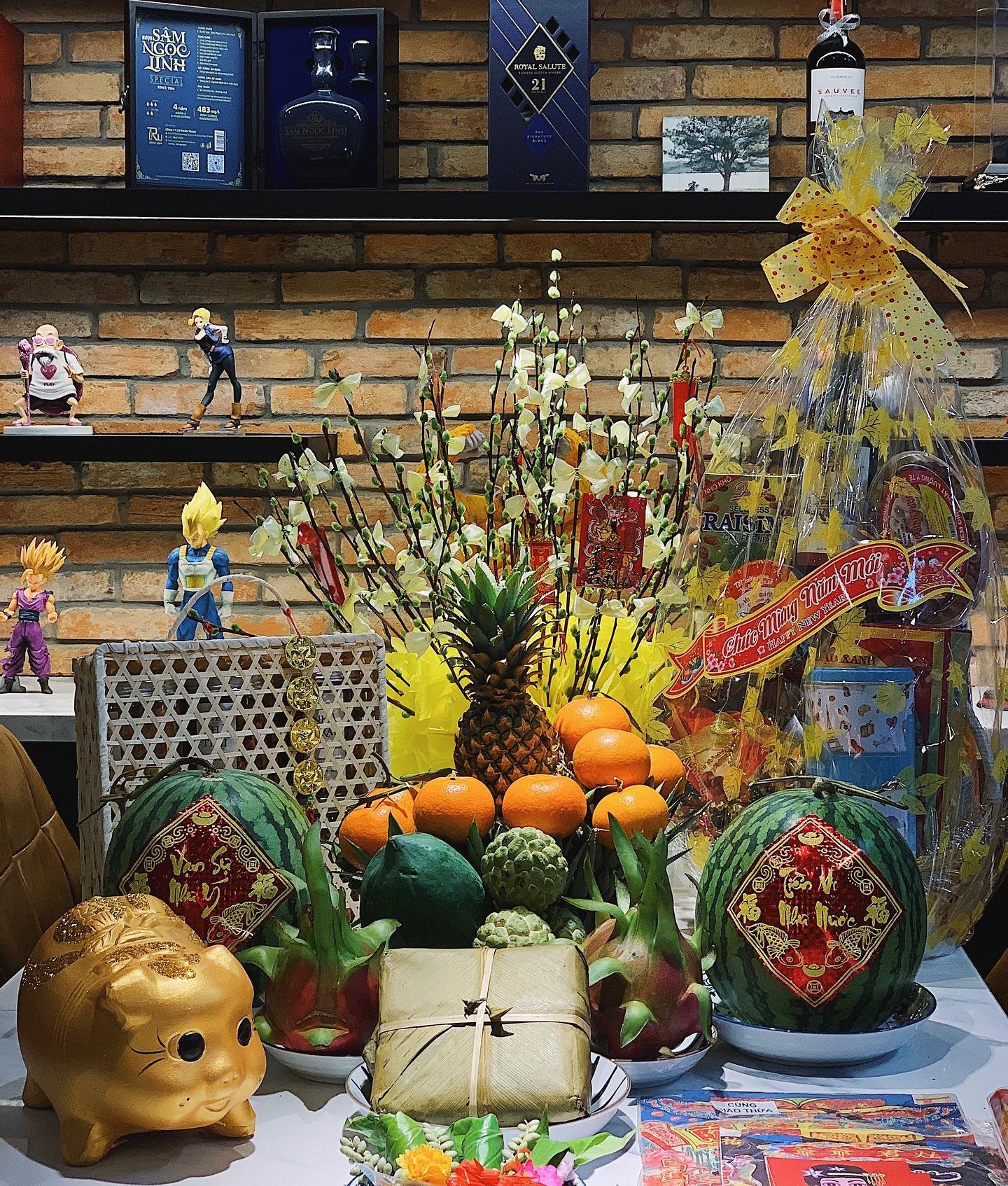
Along with fresh flowers, traditional dishes, and other decorations, a five-fruit tray is a vital element on the ancestral altar during Tet.
Diverse regions exhibit unique styles of displaying these trays, but each must consist of five different fruits. The number five symbolizes life, while odd numbers represent growth and development, symbolizing prosperity, harmony, and a year filled with peace, luck, wealth, health, and longevity.
30th December (Sunday, 08 Feb 2025)
Year-end Ritual
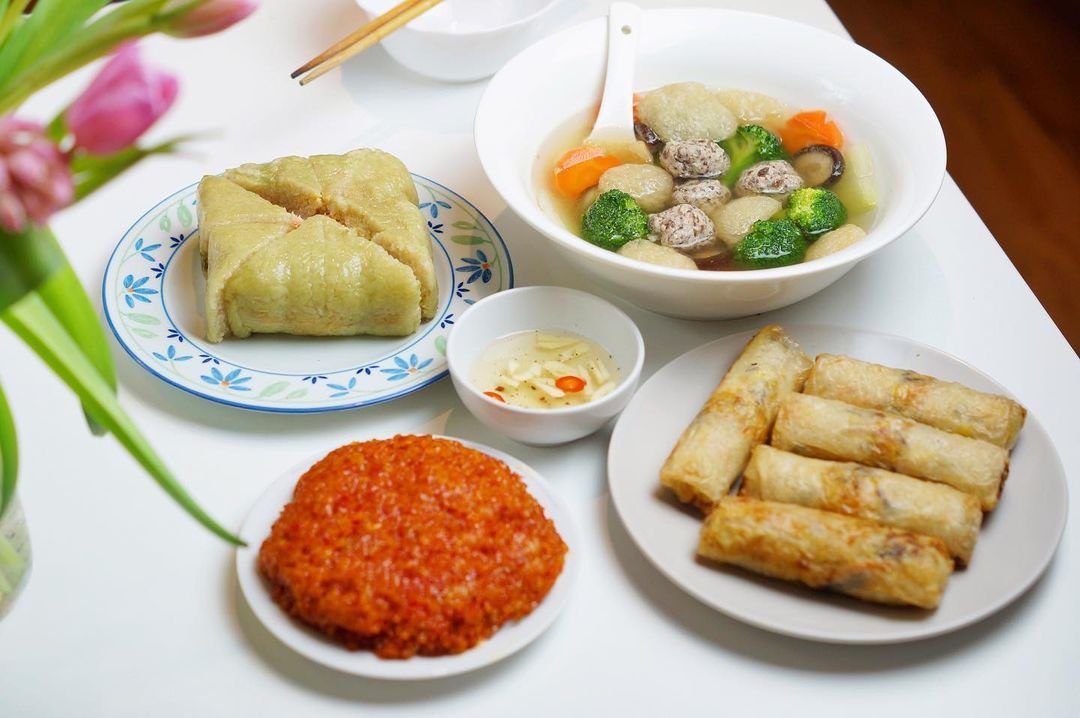
On the final day of the year, two significant rituals occur: a year-end ceremony for offerings and the New Year's Eve ritual. The year-end ritual is observed before New Year's Eve and typically takes place in the evening. Families prepare an elaborate dinner featuring special dishes and place them on the altar for ancestors, inviting them to join in Tet celebrations. After the ritual, family members gather to share a meal and reflect on the past year while planning for the one ahead.
New Year's Eve Ritual
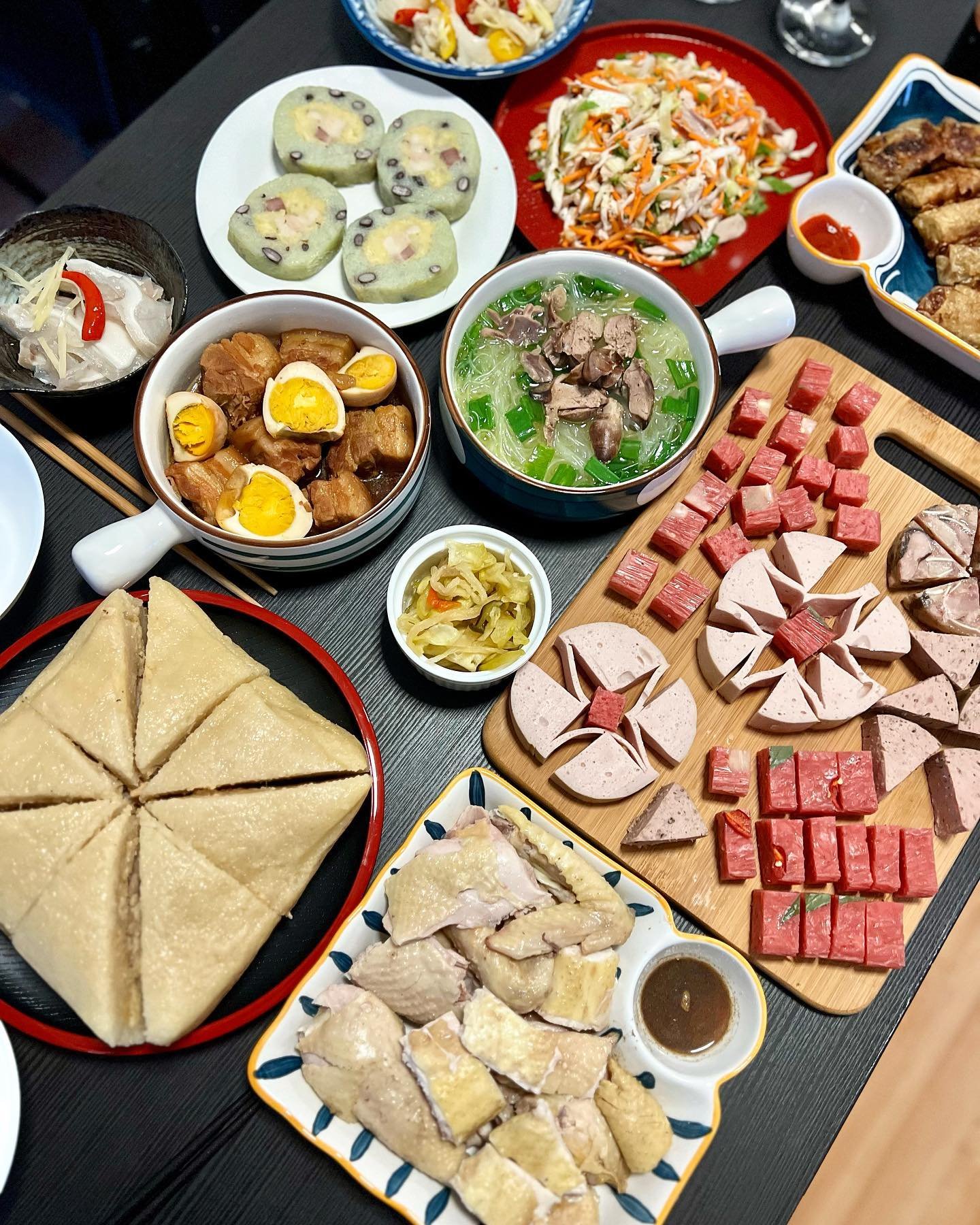
As the moments transition from the old year to the new year, families perform a New Year's Eve ritual. The offering tray should be arranged before midnight on January 1st, placed both indoors and outdoors. The outdoor ritual bids farewell to the deity who protected the household in the past year while welcoming the new deity. Concurrently, the indoor ritual involves worshipping ancestors and divine guardians of the household.
Common offerings include red sticky rice (xôi gấc), boiled chicken, five fruits, betel leaves, areca nuts, alcohol, tea, Bánh Chưng or Tét Cake, candies, incense, flowers, and candles.
Xông Đất
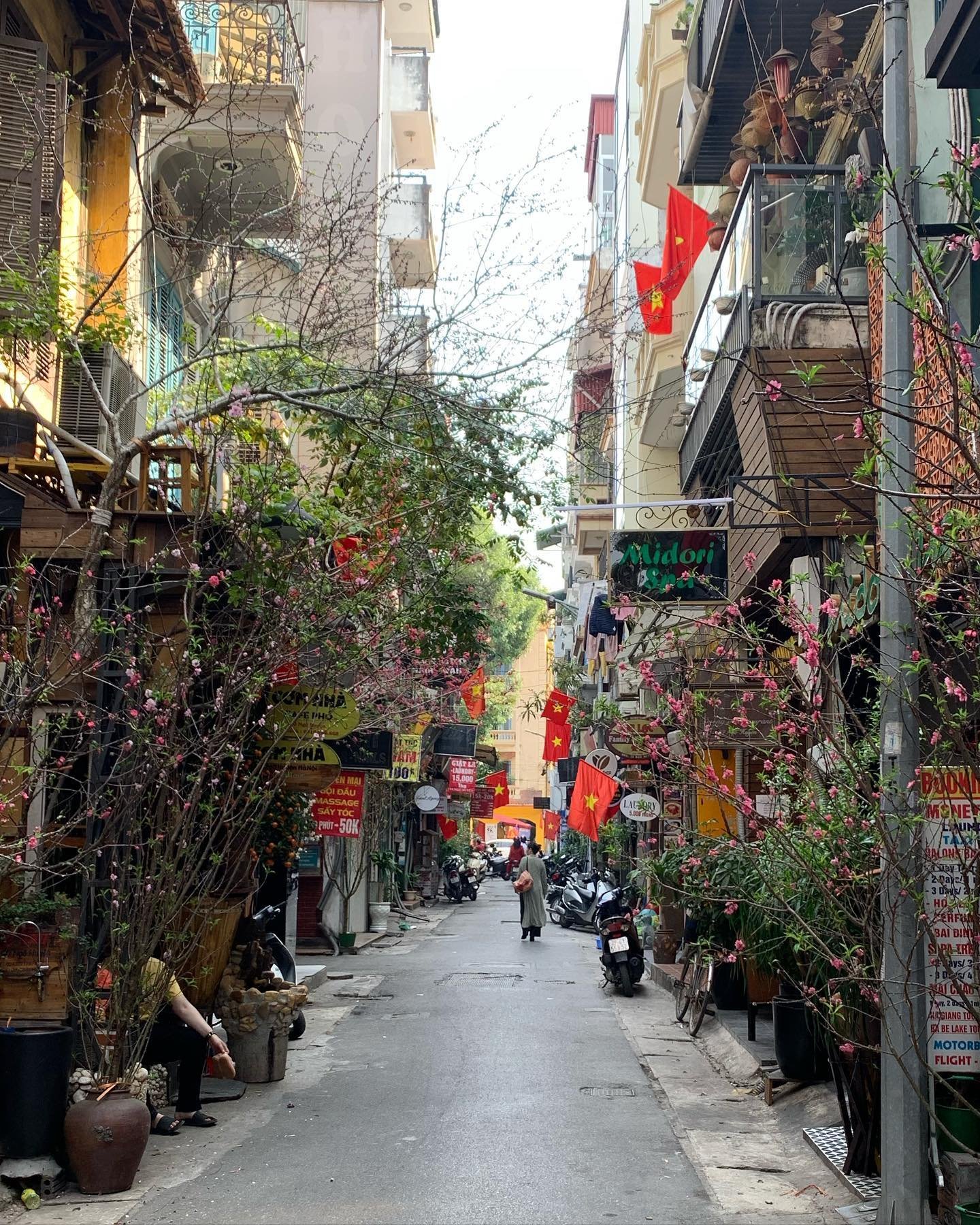
The ritual of "Xông Đất" is crucial in Vietnamese culture. This signifies the first visitor to the home in the new year, who is believed to bring fortune to the family for the entire year. Therefore, hosts carefully choose a trusted individual, embodying positive traits, to be the inaugural visitor at the onset of the new year, hoping to usher in luck and blessings.
1st January (Monday, 09 Feb 2025)
Visit Relatives and Give Lucky Money on Father's Side
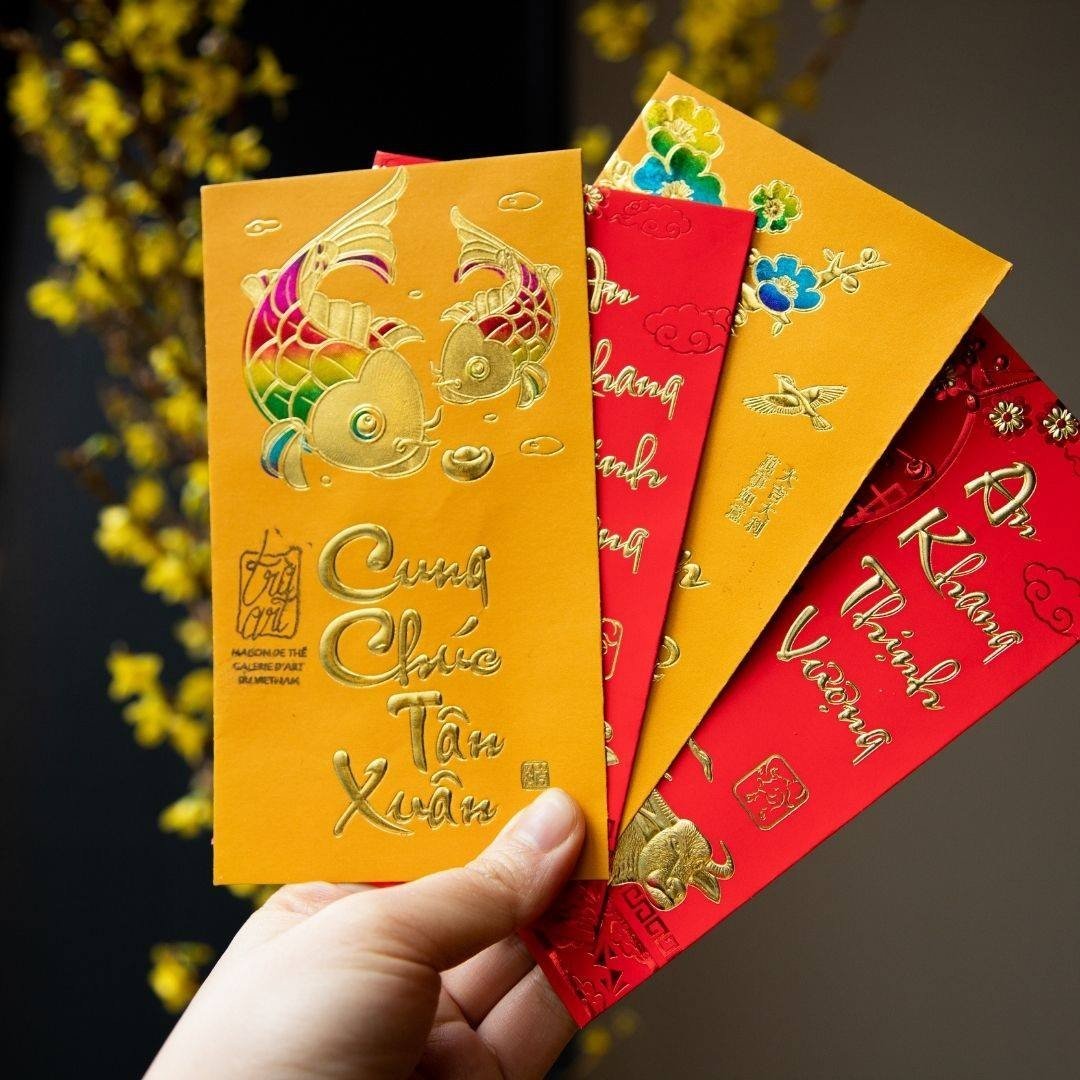
On the first day of the new year, visiting relatives is a cherished tradition in Vietnam. Families gather to visit each other's homes, share gifts, give lucky money, and exchange best wishes. The first day is typically set aside for visiting paternal relatives, while the second day is dedicated to maternal families.
During these visits, children and grandchildren wish their elders health and happiness, while adults reciprocate wishes by giving lucky money to children, symbolizing good fortune and success in their endeavors.
2nd January (Tuesday, 10 Feb 2025)
Visit Relatives and Give Lucky Money on Mother's Side
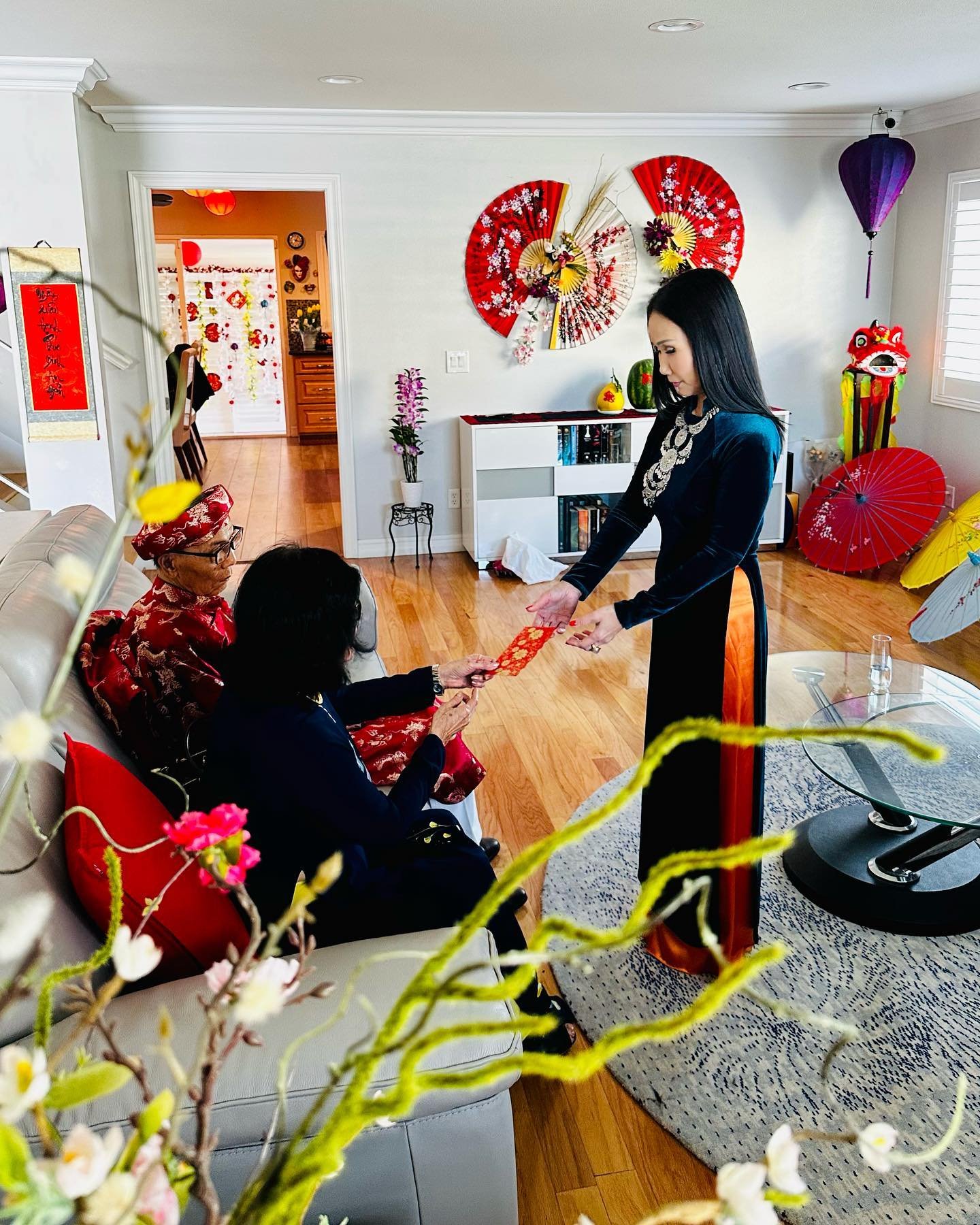
On the second day of the year, traditional visits continue, focusing on maternal relatives. Though it's customary to visit the mother's side on this day, families are not obligated to wait; they may visit both sides of the family on the first day of Tet.
3rd January (Wednesday, 11 Feb 2025)
Visit Teachers, Friends, Other Relatives, and Neighbors

Respecting educators is a deeply ingrained Vietnamese tradition. Following the ancestral tributes and offering New Year wishes to grandparents and parents, the third day is typically reserved for visiting teachers. It is also a time to reconnect with friends and extend greetings to further relatives and neighbors.
Go to the Temple/Pagoda
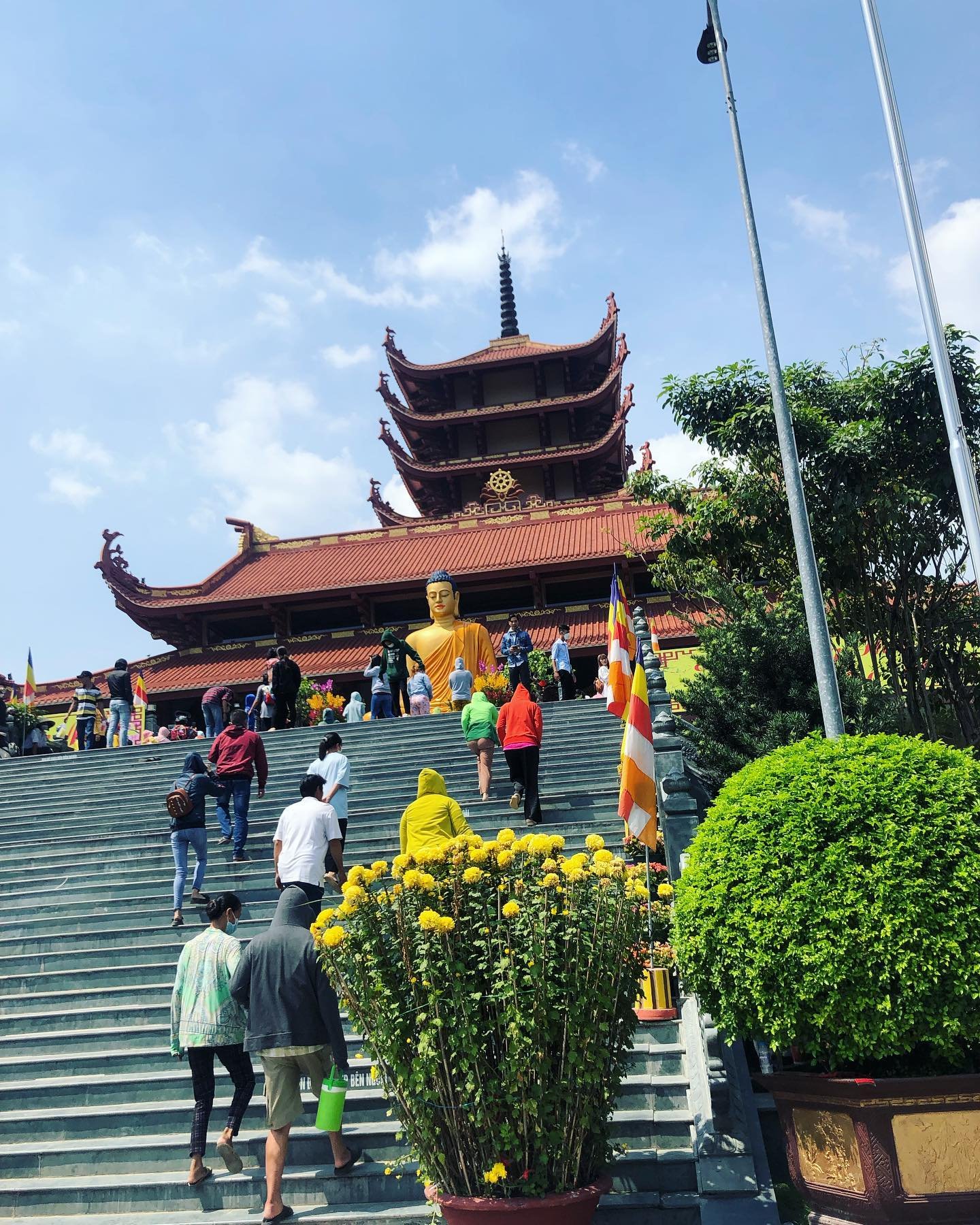
The third day generally coincides with the completion of family visits on both sides, making it an ideal time for outings, including trips to pagodas and temples. Vietnamese pay their respects to Buddha, deities, and ancestors while praying for luck and prosperity, seeking mental tranquility and goodwill for the new year.
Request Calligraphy Letters
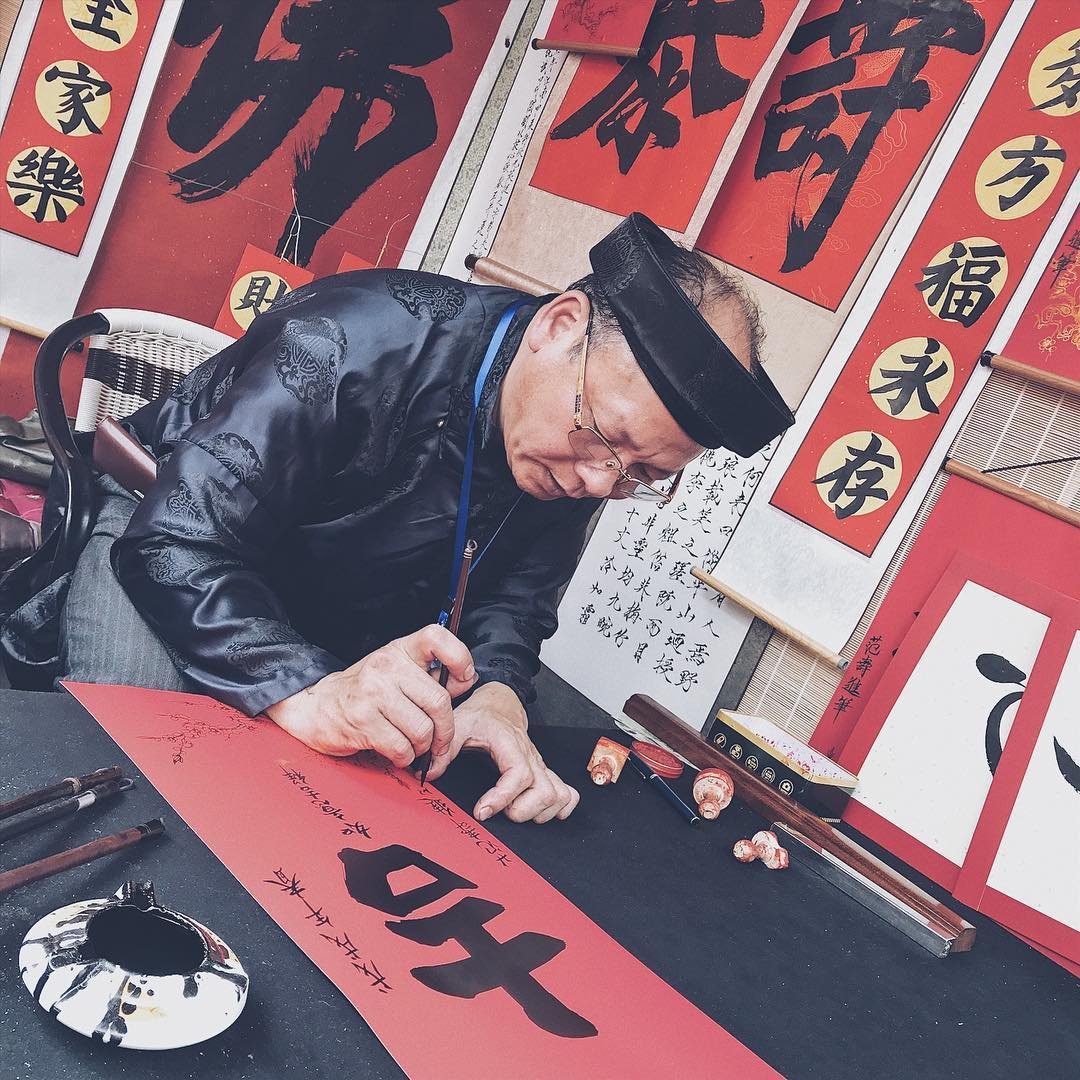
During visits to pagodas or participation in Tet festivals, asking for calligraphy letters becomes a favored activity for many Vietnamese. These significant characters are often displayed in homes, symbolizing good wishes for the upcoming year. Each person may request distinct letters representing their aspirations, such as peace, luck, happiness, wealth, and health.
15th January (Saturday, 24 Feb 2025)
Worship the First Full Moon of the Year - Tết Nguyên Tiêu

The first full moon of the year, also referred to as Tết Nguyên Tiêu or Tết Thượng Nguyên, is one of the four major full moon observances in Vietnam (15th January, 15th April, 15th July, and 15th October). On this day, individuals often visit pagodas and partake in ceremonies to ward off evil spirits, praying for peace throughout the year. Ancestors, as well as heaven and earth, are honored during this time, with hopes for favorable weather and bountiful harvests in the year ahead.













